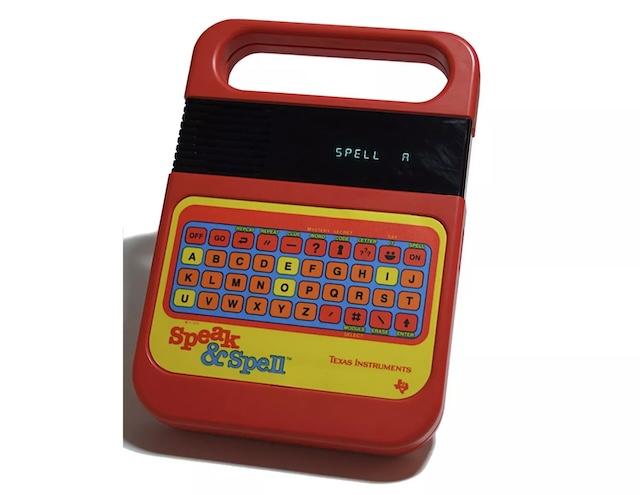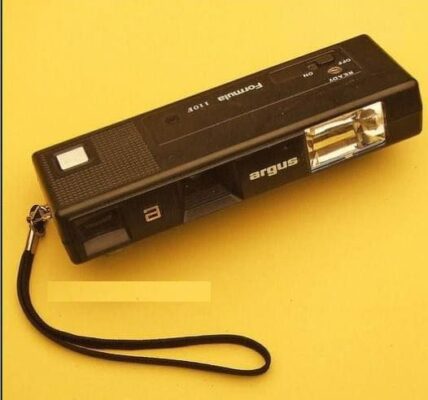The Revolutionary Legacy of Speak and Spell: A Journey Through Educational Innovation-s1
The late 1970s and early 1980s marked a golden era for innovative educational toys, and one standout creation from this period was the Speak and Spell. This handheld electronic device revolutionized how children learned spelling and pronunciation, leaving a lasting impact on both education and popular culture. In this article, we explore the history of the Speak and Spell, its technological advancements, cultural significance, and enduring legacy.

The Speak and Spell was developed by Texas Instruments, a company renowned for its pioneering work in semiconductor technology. The concept for the device was conceived in the mid-1970s by a team of engineers led by Paul Breedlove. Their mission was to create an educational tool that would help children improve their spelling and pronunciation skills through interactive play.
In June 1978, the Speak and Spell made its debut at the Summer Consumer Electronics Show, signaling the dawn of a new era in educational toys. With its unique ability to articulate words and provide real-time feedback, the device was an instant hit, setting the stage for its widespread adoption in homes and classrooms.
The Technology Behind Speak and Spell
What set the Speak and Spell apart from other educational toys of its time was its groundbreaking technology. The device featured a speech synthesizer powered by the TMC0280 chip, also known as the “Speak & Spell” chip. This chip utilized a form of linear predictive coding to generate speech, a cutting-edge technology that allowed the device to articulate words and phrases with remarkable clarity.

The Speak and Spell also included a keyboard for user input and a display screen that showed the words being spelled. This combination of a speech synthesizer, keyboard, and display created an interactive learning experience that was both engaging and educational. Children could type in words, hear them pronounced, and see them displayed on the screen, making learning to spell and pronounce words a fun and immersive experience.
Speak and Spell Hits the Market
When the Speak and Spell hit the market, it quickly became a favorite among parents, educators, and children alike. Its innovative design, coupled with its educational value, made it a sought-after tool for teaching children how to spell and pronounce words correctly. The device’s portability and ease of use further enhanced its appeal, allowing children to learn on the go.

By the end of 1978, the Speak and Spell had become one of the top-selling educational toys in the United States. Its success was a testament to the growing demand for educational tools that combined technology with traditional learning methods. The Speak and Spell’s popularity also underscored the importance of interactive learning, a concept that would continue to evolve in the decades to come.
The Educational Impact of Speak and Spell
The Speak and Spell had a profound impact on educational practices. It introduced a new way of learning that blended technology with traditional teaching methods. The device’s interactive nature made learning more engaging and enjoyable for children, helping to improve their spelling and pronunciation skills.
Educators praised the Speak and Spell for its ability to provide immediate feedback, which was crucial for reinforcing correct spelling and pronunciation. This feature allowed children to learn at their own pace, making the Speak and Spell an invaluable tool for both individual and classroom learning.
Speak and Spell in Popular Culture

The influence of the Speak and Spell extended beyond education into popular culture. The device became a cultural icon of the 1980s, appearing in various TV shows, movies, and advertisements. One of its most memorable appearances was in the 1982 film “E.T. the Extra-Terrestrial,” where the titular character used it to create a communication device. This exposure helped solidify the Speak and Spell’s status as a beloved gadget of the era.
The device’s presence in popular culture not only reflected its widespread use but also highlighted its role in shaping the technological landscape of the time. The Speak and Spell became a symbol of innovation and progress, representing the potential of technology to transform education and everyday life.
The Legacy of Speak and Spell
Despite the rapid advancements in technology over the past few decades, the Speak and Spell remains a cherished piece of nostalgia for many who grew up in the 1970s and 1980s. Its innovative design and educational impact have left a lasting legacy, influencing the development of modern educational tools and toys.

The success of the Speak and Spell paved the way for future innovations in interactive learning. It demonstrated the power of technology to enhance education and inspired a new generation of educational devices that continue to shape the way children learn today. From apps to interactive e-books, the principles behind the Speak and Spell’s design are still evident in the educational tools we use today.
Conclusion
The Speak and Spell was more than just a toy; it was a revolutionary educational tool that changed the way children learned spelling and pronunciation. Its innovative technology, cultural impact, and enduring legacy have ensured its place in the annals of educational history. As we look back on the history of the Speak and Spell, we are reminded of a time when technology and education came together to create something truly remarkable. Its legacy continues to inspire and influence the development of educational tools, making it a true icon of its time.




